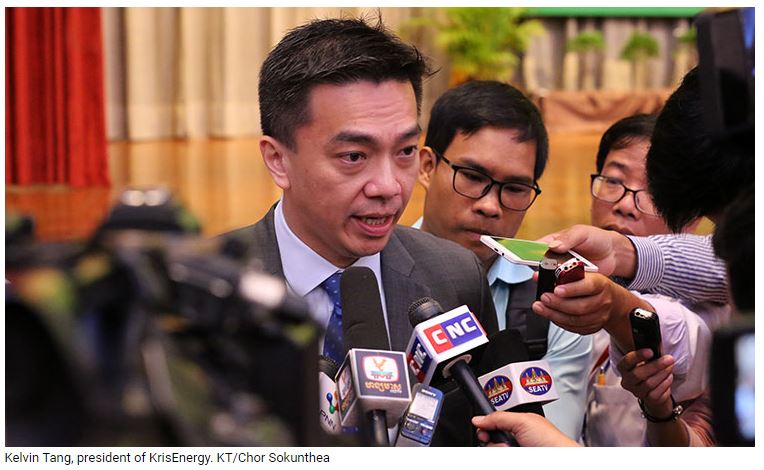Cambodia: Government issues regulation on taxing oil production operations
The Ministry of Economy and Finance issued a sub-decree this week detailing taxation requirements for oil production operations in the Kingdom.
Sub-decree number 52, signed by Prime Minister Hun Sen in April and published in the Royal Gazette for the second quarter of the year, aims to boost the development of the local extractive industries by setting strong tax incentives for companies in the sector.
In particular, the regulation focuses on drilling activity in the Apsara oilfield, also known as Block A, an area in the Gulf of Thailand located approximately 150 kilometres from land, where water depths range between 50 and 80 metres.
Last year, Singaporean company KrisEnergy gained the right to develop the Apsara oilfield. The company holds a 95 percent working interest in the oilfield, with the remaining five percent held by the Cambodian government.
The sub-decree grants a raft of tax exemptions and incentives to companies operating in Block A. Taxes related to asset transfers, production costs, facilities and equipment, for example, will not be levied.
Likewise, companies will have to pay just 25 percent income tax during the first five years, and 30 percent in the following years.
Companies will also be exempted from paying the minimum tax as well as customs duties and VAT on imported goods, but they will be levied a tax of two percent on oil exports.
Cheap Sour, director of the Petroleum Department at the Ministry of Mines and Energy, told Khmer Times that KrisEnergy is now preparing the tender process to select the company that will operate the platforms.
“Everything is going as planned and we expect to extract the first drop of oil by end of 2019,” he said.
“The Petroleum Law has yet to be finished, but we have signed a petroleum extraction agreement with KrisEnergy so that they can begin work,” Mr Sour said, adding that he expects the Petroleum Law to be ready by the end of the year.
KrisEnergy announced in October 2017 that it had reached a final investment decision to proceed with the first phase of development in the Apsara oilfield, and expects to begin oil production by 2019. Around three million tonnes per year will be produced initially, eventually expanding to eight million by 2023.
Source: https://www.khmertimeskh.com/50500053/government-issues-regulation-on-taxing-oil-production-operations/


 English
English




